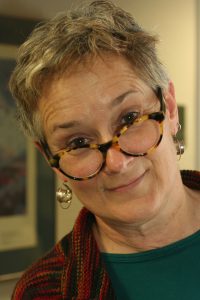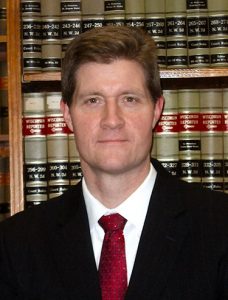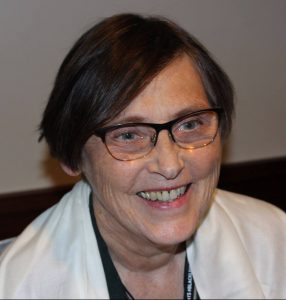Criminal Justice in Wisconsin:
The Good, the Bad, and the Ugly
The Good, the Bad, and the Ugly
Link to video, October 11th, 2016.

Before joining the Law School’s clinical faculty, Michele LaVigne practiced as a State Public Defender in Madison, Wisconsin. She now teaches criminal law, professional responsibility, and trial advocacy. She is the director of the Remington Center’s Public Defender Project, in which law students are placed as interns in public defender offices throughout Wisconsin.
Prof. LaVigne is a member of the faculty of the National Criminal Defense College and the Wisconsin Public Defender Trial Skills Academy. She has given presentations to defense attorneys around the country on trial advocacy. In 2010, she received the David Niblack Award from the Wisconsin Association of Criminal Defense Lawyers for service to the indigent.
During most of her tenure at the Law School, Prof. LaVigne has also been involved in research and litigation on the rights of deaf defendants. She co-authored “An Interpreter Isn’t Enough: Deafness, Language and Due Process,” * 2003 Wis. L. Rev. 843 (with McCay Vernon, Ph.D), which discusses deafness and language acquisition and their combined effects on deaf and severely hard-of-hearing individuals in the criminal justice system. Prof. LaVigne has lectured in a number of states to organizations of the deaf and hard of hearing, as well as to interpreter groups. Based on her advocacy for the deaf community, Prof. LaVigne received the Distinguished Member of the Year Award from the Wisconsin Association the Deaf in 2005 and the Thomas G. Cannon Equal Justice Medal from the Legal Aid Society of Milwaukee in 2009.
In 1999, Prof. LaVigne developed a mock trial program at the Wisconsin School for the Deaf in Delavan, Wisconsin. This is a joint undertaking involving WSD, the law school, and the law firm of Heller Ehrman White & McAuliffe. In 2004, the WSD mock trial team competed in the State Bar High School Mock Trial Competition. This was the first time in Wisconsin that a deaf team participated. The WSD team won the regional competition and placed sixth in the state semi-finals. The WSD team continued to participate in the state competition for a number of years.
Prof. LaVigne is currently collaborating with Gregory Van Rybroek, JD, PhD, on research and scholarship related to the communicative, behavioral, and legal implications of language impairments among populations frequently found in the juvenile and criminal justice systems. Their article “Breakdown in the Language Zone: The Prevalence of Language Impairments among Juvenile and Adult Offenders and Why It Matters”** was published the the Winter 2011 edition of UC Davis Journal of Juvenile Law and Policy. Their new article looks at the effects of a client’s language impairments on the attorney-client relationship. The article “‘He got in my face so I shot him’: How Defendants’ Language Impairments Impair Attorney-Client Relationships,” will appear in Volume 17 of the CUNY Law Review (Winter 2014).***
Prof. LaVigne received the Law School’s first Clinical Teacher of the Year Award in 2008.
—

John Chisholm was born in Milwaukee and raised in the suburban communities of Menomonee Falls and Elm Grove in Waukesha County. He graduated from Marquette University High School in 1981 and attendedSt. John’s University andMarquette University, graduating from the latter in 1986.[2]Between 1986 and 1990, Chisholm enlisted in the U.S. Army and was stationed in the Korean demilitarized zone rising to the rank of first lieutenant. In 1994, Chisholm graduated from the University of Wisconsin Law School. He was hired that year as an assistant district attorney by E. Michael McCann, then the district attorney of Milwaukee County.
In 1999, Chisholm was selected as supervisor of McCann’s firearms enforcement unit.[2] In this position, Chisholm prosecuted millionaire marijuana dealer Kenneth L. Green and members of Jamaican and Latin Kings organized crime outfits. [2][3] When McCann announced his impending retirement in December 2005, Chisholm entered the race to replace him. After defeating former Milwaukee alderwoman Larraine McNamara-McGraw in the Democratic primary, Chisholm easily outpolled independent Lew Wasserman in the general election. Prior to his election as district attorney, Chisholm was an assistant district attorney and the supervisor of the office’s gun-crime unit.
—

Pamela Oliver received her PhD in sociology from the University of North Carolina in 1977. She was an assistant professor at the University of Louisville from 1976-1980, and has been at the University of Wisconsin since 1980, where she has been a full professor since 1990 and a Conway-Bascom Professor since 2004. She is well-known for her work on collective action and social movements, and has published numerous influential articles and a book (with Gerald Marwell) on these topics. She has several National Science Foundation grants and has served on the National Science Foundation’s Sociology Advisory Committee. Her work on the causes and consequences of the racial disparity in imprisonment began out of her community service involvement. She is working on a project based in detailed statistical comparisons between states in the US 1983-2003. She has done a detailed analysis of racial disparities in imprisonment and arrest in Wisconsin, and has given numerous presentations to public officials and community members on these issues. She serves on the board of several non-profit organizations and community advisory committees concerned with criminal justice issues and has made dozens of presentations to public officials and general audiences as well as given numerous interviews to various news media about patterns of racial disparity in imprisonment. Because of her leadership in this area, she was asked to serve on the Governor’s special Commission to Reduce Racial Disparities in the Wisconsin Justice System, which met April 2007 – January 2008 and issued its report in February 2008; she played a major role in helping to draft this report and authored (with her collaborator James Yocom) several appendices, including a comparison of arrests and prison sentences by race to assess where in the system disparities occur, and a detailed analysis of probation and parole revocations. She served on Dane County’s racial disparities task force in 2008-9, and continues to work with public officials and non-profit groups in Wisconsin concerned about these issues.
Assigned Readings: